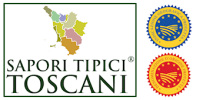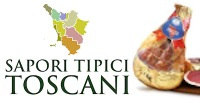Our network:
Thursday 26 December 2024
Montepulciano - the old town centre
With roughly 15,000 inhabitants, Montepulciano is in the Valdichiana region of Tuscany at an altitude of 605 metres above se level.
For centuries this town was fiercely contended by Siena and Florence, before passing definitively under the control of the latter in 1404
By order of Cosimo I de’ Medici an additional circle of fortifications was erected around the city to designs by Antonio da Sangallo the Elder. Today Montepulciano is noted for its prized wines such as the Nobile di Montepulciano, as well as for its magnificent Renaissance monuments and Medieval streets that have retained their original design with arches and vaultings.
Piazza Grande is the fulcrum of public life in Montepulciano and contains its major sights. The Duomo was built between 1592 and 1630 to designs by Ippolito Scalza. Above the high altar there is a Senese School triptych by Taddeo di Bartolo of The Assumption of the Virgin. The altar is flanked by a partly dismantled funerary monument by Michelozzo.
Next to the Duomo is the 14th century gothic Palazzo Comunale. In the 15th century Michelozzo designed the façade and tower. Next to the town hall stands the imposing 16th century Palazzo Tarugi.
Via del Corso contains Montepulciano’s major 16th century buildings: Palazzo Avignonesi and Palazzo Buccelli, with a number of Etruscan bas-reliefs and funerary sculptures incorporated into the lower section of the façade.
Beneath the fortifications stands the Church of the Madonna di San Biagio, built entirely in white travertine marble to designs by Antonio da Sangallo between 1518 and 1534. The Church of Sant’Agostino, built by Michelozzo in 1427, is in Piazza Michelozzo. Its majestic doorway is adorned with a sculpture of the Virgin and Child, with St John and St Augustine.
In July and August Montepulciano hosts the Cantiere Internazionale d’Arte arts festival founded by the German composer Hans Werner Henze. In August there is the Bruscello antique theatre festival.
For centuries this town was fiercely contended by Siena and Florence, before passing definitively under the control of the latter in 1404
By order of Cosimo I de’ Medici an additional circle of fortifications was erected around the city to designs by Antonio da Sangallo the Elder. Today Montepulciano is noted for its prized wines such as the Nobile di Montepulciano, as well as for its magnificent Renaissance monuments and Medieval streets that have retained their original design with arches and vaultings.
Piazza Grande is the fulcrum of public life in Montepulciano and contains its major sights. The Duomo was built between 1592 and 1630 to designs by Ippolito Scalza. Above the high altar there is a Senese School triptych by Taddeo di Bartolo of The Assumption of the Virgin. The altar is flanked by a partly dismantled funerary monument by Michelozzo.
Next to the Duomo is the 14th century gothic Palazzo Comunale. In the 15th century Michelozzo designed the façade and tower. Next to the town hall stands the imposing 16th century Palazzo Tarugi.
Via del Corso contains Montepulciano’s major 16th century buildings: Palazzo Avignonesi and Palazzo Buccelli, with a number of Etruscan bas-reliefs and funerary sculptures incorporated into the lower section of the façade.
Beneath the fortifications stands the Church of the Madonna di San Biagio, built entirely in white travertine marble to designs by Antonio da Sangallo between 1518 and 1534. The Church of Sant’Agostino, built by Michelozzo in 1427, is in Piazza Michelozzo. Its majestic doorway is adorned with a sculpture of the Virgin and Child, with St John and St Augustine.
In July and August Montepulciano hosts the Cantiere Internazionale d’Arte arts festival founded by the German composer Hans Werner Henze. In August there is the Bruscello antique theatre festival.
Booking.com
• Siena in the Renaissance
• Siena in the Middle Ages
• Siena in Antiquity
• Town Map Siena
• Farm Holidays and Country Houses
• Residence, Apartments
• Bed & Breakfasts
• Historical Residences
• Last Minute Siena
• Restaurants
• Pubs & Wine Bar
• University for Foreigners
• Palazzo Chigi-Saracini
• Palazzo d’Elci degli Alessi
• Loggia della Mercanzia
• Palazzo Sansedoni
• Palazzo Chigi-Zondadari
• Fonte Gaia fountain
• Carthusian Monastery of Pontignano
• Forte di Santa Barbara
• The Duomo – The Cathedral of the Assunta
• Church of the Osservanza
• The Oratory of San Bernardino
• Church of San Francesco
• Short Biography of St Catherine of Siena
• St Catherine Sanctuary
• Church of S. Niccolò al Carmine
• Bologna-Buonsignori museum
• Accademia dei Fisiocritici
• I Musei Senesi
• The Palazzo Pubblico and the Torre del Mangia
• Piazza del Campo
• The Montagnola Senese and the Fortified Village of Sovicille
• The Castles of Belcaro and Quattro Torri
General information
• Town map • Siena in the Renaissance
• Siena in the Middle Ages
• Siena in Antiquity
Transport in town
• Map of Hotels in Siena • Town Map Siena
Transport out of town
• Train services
Where to Stay
• Hotels • Farm Holidays and Country Houses
• Residence, Apartments
• Bed & Breakfasts
• Historical Residences
OFFERS & LAST MINUTE
• Reservation Services Siena • Last Minute Siena
Where to eat and drink
• Disco Dancing • Restaurants
• Pubs & Wine Bar
Education
• Siena University • University for Foreigners
Art and monuments
• Palazzo Piccolomini and Palazzo delle Papesse • Palazzo Chigi-Saracini
• Palazzo d’Elci degli Alessi
• Loggia della Mercanzia
• Palazzo Sansedoni
• Palazzo Chigi-Zondadari
• Fonte Gaia fountain
• Carthusian Monastery of Pontignano
• Forte di Santa Barbara
Art and religion
• Church of Sant’Agostino • The Duomo – The Cathedral of the Assunta
• Church of the Osservanza
• The Oratory of San Bernardino
• Church of San Francesco
• Short Biography of St Catherine of Siena
• St Catherine Sanctuary
• Church of S. Niccolò al Carmine
Museums and galleries
• The Museo Civico • Bologna-Buonsignori museum
• Accademia dei Fisiocritici
• I Musei Senesi
Art and tourist attractions
• Cappella di Piazza • The Palazzo Pubblico and the Torre del Mangia
• Piazza del Campo
• The Montagnola Senese and the Fortified Village of Sovicille
• The Castles of Belcaro and Quattro Torri
Booking.com
• The July and August Palio
• The Contrade
• The Days of the Palio
• The Drappellone
• The Eve of the Palio
• The Corteo Storico Procession
• The Race
• The Patron Saint and Oratory of Each Contrada
• Weekly Appointments in each Contrada from April onwards
• Croce del Travaglio Place
• From Piazza del Campo to the Duomo Along Via di Città
• The Curves of Piazza del Campo
• Costarella dei Barbieri street
• Borgo d’Ovile
• The Terzo of Camollia – main streets
• Casato di Sopra e Casato di Sotto
• Terzo di San Martino district
• The Terzo di Città District - Via Stalloreggi, Via San Quirico
• The Terzo di Città District – The Pinacoteca Nazionale
• Golf courses in Siena and Tuscany
• Wedding in Tuscany - Siena area
• San Casciano dei Bagni
• Chianciano Terme
• Bagni San Filippo
• Bagno Vignoni
• Rapolano Terme - Baths of San Giovanni and Baths of the Antica Querciolaia
• The Countryside around Siena and its Thermal Water Springs
• SkiPass Monte Amiata
• WebCam sul Monte Amiata
• Meteo Monte Amiata
• The Val d’Orcia and Its Main Towns
• Pienza - the old town centre
• Montepulciano - the old town centre
• San Quirico d’Orcia - the old town centre
• Montalcino and the Land of Brunello
• The Abbey of Monte Oliveto Maggiore and the Crete
• The Crete Senesi
• Castellina in Chianti and the Via Chiantigiana Towards Siena
• Siena and Southern Chianti - from the Castle of Montalto to the Castle of Brolio and on to the Castle of Meleto
• The Chianti Hills - Monte Calvo, Monte Luco and Monte San Michele
• Cortona and the Valdichiana
• San Gimignano - The old town centre and its major sights
• The Val d’Elsa - Monteriggioni and Colle di Val d’Elsa
• Along the Old Via Francigena
• Oleum Evo online selling
• Sapori Tipici Italiani buy online now
• il Prosciutto Cotto
The Palio of Siena
• The Origins • The July and August Palio
• The Contrade
• The Days of the Palio
• The Drappellone
• The Eve of the Palio
• The Corteo Storico Procession
• The Race
• The Patron Saint and Oratory of Each Contrada
• Weekly Appointments in each Contrada from April onwards
Sightseeing
• Via di Città (formerly Via Galgaria), Siena’s Most Elegant Street • Croce del Travaglio Place
• From Piazza del Campo to the Duomo Along Via di Città
• The Curves of Piazza del Campo
• Costarella dei Barbieri street
• Borgo d’Ovile
• The Terzo of Camollia – main streets
• Casato di Sopra e Casato di Sotto
• Terzo di San Martino district
• The Terzo di Città District - Via Stalloreggi, Via San Quirico
• The Terzo di Città District – The Pinacoteca Nazionale
What to see & do
• Wedding in Siena • Golf courses in Siena and Tuscany
• Wedding in Tuscany - Siena area
• San Casciano dei Bagni
• Chianciano Terme
• Bagni San Filippo
• Bagno Vignoni
• Rapolano Terme - Baths of San Giovanni and Baths of the Antica Querciolaia
• The Countryside around Siena and its Thermal Water Springs
Monte Amiata
• Monte Amiata - nature tourism the year round • SkiPass Monte Amiata
• WebCam sul Monte Amiata
• Meteo Monte Amiata
Specials - Out of town
• Gift Ideas for traveling • The Val d’Orcia and Its Main Towns
• Pienza - the old town centre
• Montepulciano - the old town centre
• San Quirico d’Orcia - the old town centre
• Montalcino and the Land of Brunello
• The Abbey of Monte Oliveto Maggiore and the Crete
• The Crete Senesi
• Castellina in Chianti and the Via Chiantigiana Towards Siena
• Siena and Southern Chianti - from the Castle of Montalto to the Castle of Brolio and on to the Castle of Meleto
• The Chianti Hills - Monte Calvo, Monte Luco and Monte San Michele
• Cortona and the Valdichiana
• San Gimignano - The old town centre and its major sights
• The Val d’Elsa - Monteriggioni and Colle di Val d’Elsa
• Along the Old Via Francigena
Typical products
• Typical Tuscan flavours • Oleum Evo online selling
• Sapori Tipici Italiani buy online now
• il Prosciutto Cotto









